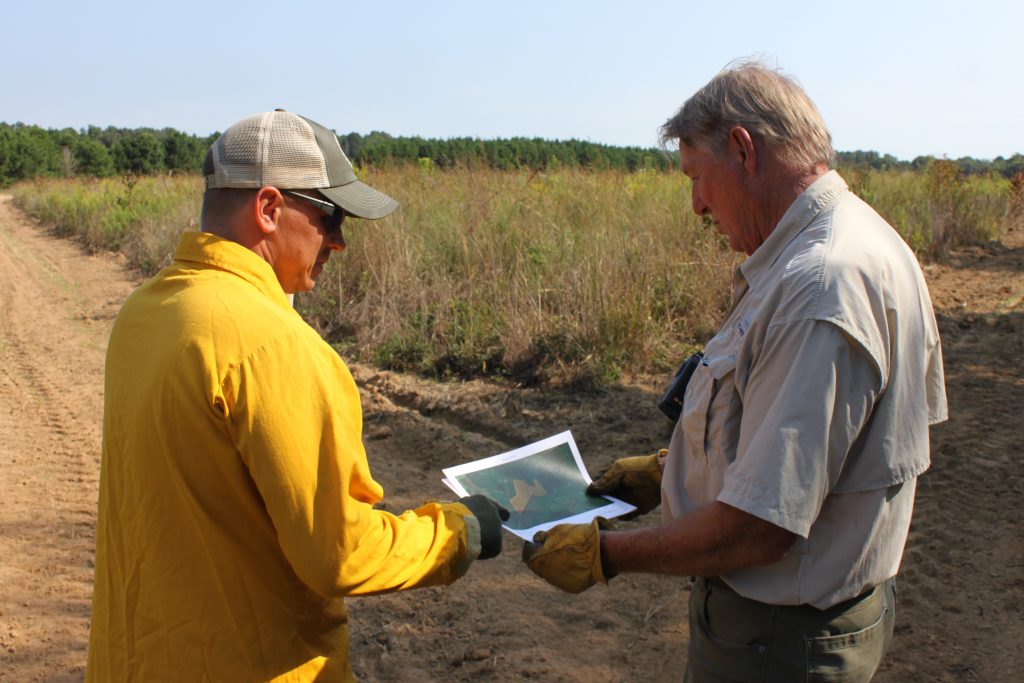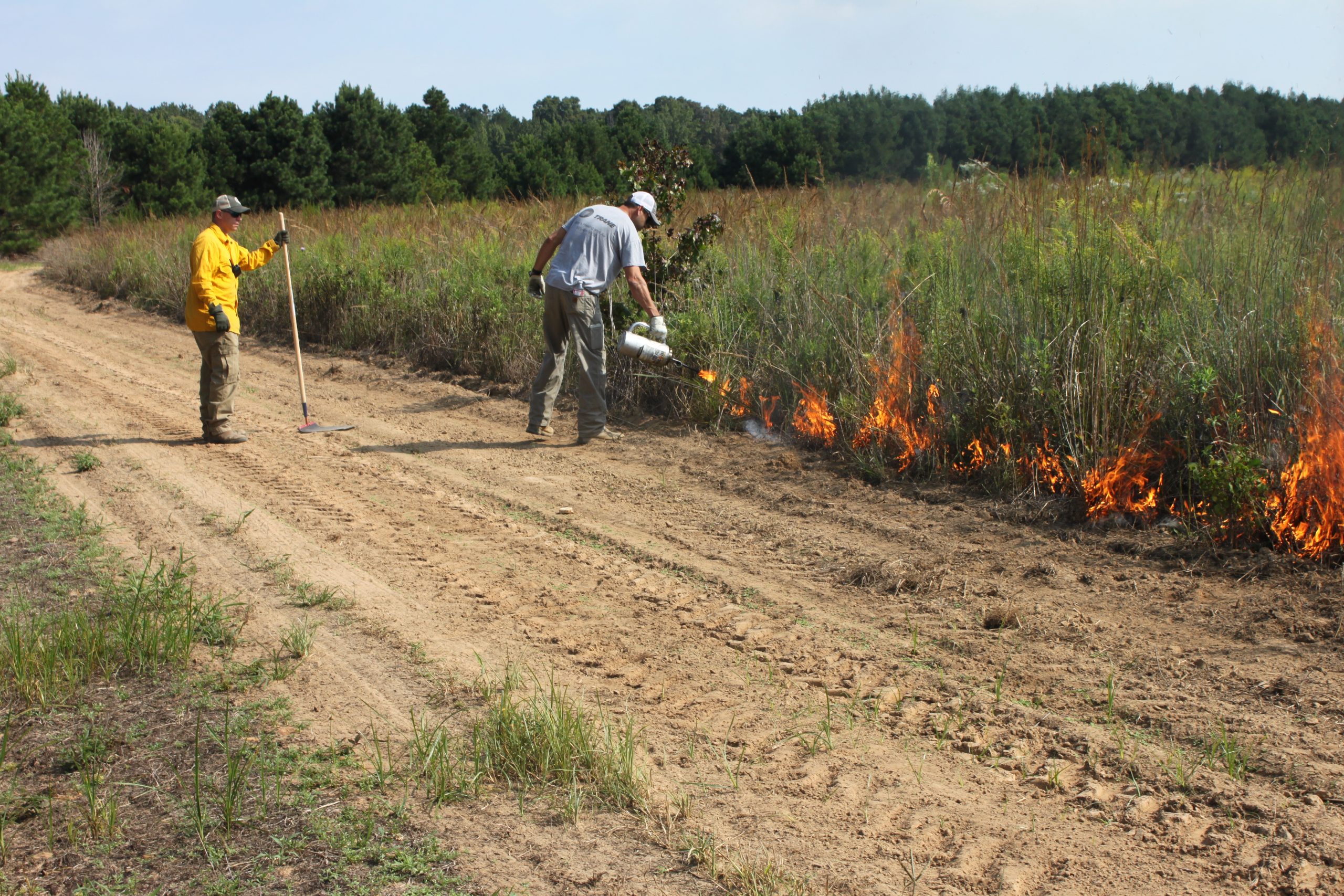Mississippi Initiative Fuels Conservation Through Controlled Burns on Private Lands
In 2011, the Mississippi Department of Wildlife, Fisheries, and Parks, in collaboration with its partners, initiated a landowner incentive initiative known as "Fire on the Forty" to promote the use of prescribed fire on privately owned land.
Controlled burning is a time-tested and invaluable tool for managing native plant communities upon which wildlife populations across the United States depend upon. Through the deliberate and controlled application of fire, prescribed fire helps promote the growth of beneficial plants, reduce undesirable vegetation and decrease the risk of destructive wildfires.
"In general, what we are trying to do is set back succession, which is the change in the vegetation inhabiting an area over time, to favor early successional plant communities and diverse plant communities," said John Gruchy, Mississippi Department of Wildlife, Fisheries, and Parks state private lands coordinator.
Numerous species currently experiencing population declines rely on diverse plant communities at various stages of their life cycles. Whether it's for shelter during brooding or nesting, as well as feeding purposes, plant communities that have undergone prescribed fire management play a pivotal role in fulfilling many of these essential requirements for species that rely on fire disturbance on the landscape.
By strategically focusing its efforts on ecologically important regions, the Mississippi Department of Wildlife, Fisheries, and Parks intends to nurture clusters of "habitat patches" situated close to one another. This approach benefits less mobile wildlife species, such as bobwhite quail, rabbits and wild turkey poults, improving their chances of survival.

The Fire on the Forty initiative promotes the responsible use of controlled burns within privately owned fields and upland forests. This is accomplished through a multifaceted strategy that involves educating landowners through hands-on workshops and providing financial assistance for prescribed fire projects.
Despite the significant benefits, many private landowners hesitate to adopt this practice due to concerns about costs and liability. This program hopes to change that mindset.
"One of the biggest concerns is that landowners have different levels of comfort with fire," Gruchy said.
The Mississippi Department of Wildlife, Fisheries, and Parks works with a diverse range of individuals, from highly experienced certified burn managers who conduct their own controlled burns to those who have never engaged in prescribed fire and may need to outsource the process.
Before any burning can begin, MDWFP discusses and determines landowners’ objectives and how prescribed fire aligns with these goals. Once this is established, landowners are given the opportunity to participate in educational programs aimed at familiarizing them with using controlled burns as a conservation tool.
Fire on the Forty workshops provide an opportunity for landowners to learn about prescribed fire in both a classroom and field-based setting. The classroom session focuses on topics such as fire weather, ignition and suppression techniques, prescribed burn planning, habitat management and information on liability and legal aspects. In contrast, the field session provides hands-on training in pre-fire planning, communication, ignition, fire suppression, safety measures and post-burn evaluations.
This initiative allows landowners in designated focal counties to receive reimbursement for up to 75% of their control burn costs. Since its inception in 2011, the program has played a crucial role in facilitating prescribed fire on over 84,000 acres of land. Furthermore, the total monetary support extended to landowners through the Fire on the Forty initiative amounts to $883,264.69, with matched funds reaching $982,536.
In addition to securing funding through state wildlife grants and various partners, the Mississippi NWTF State Chapter has been a steadfast contributor to the Fire on the Forty initiative since 2014, supporting the initiative through its Super Fund dollars. Notably, the chapter recently pledged $40,000 over four years. This commitment played a pivotal role in leveraging the initiative's efforts, ultimately leading to the receipt of a National Fish and Wildlife Foundation grant of $4.3 million.
As a result of these efforts, regions in southern Mississippi are already witnessing encouraging responses in their wildlife populations, including wild turkeys. The initiative envisions extending its impact beyond prescribed fire alone, intending to explore other types of land management practices in the future, including herbicide use, forest thinning and more, as part of its broader conservation objectives.
To be eligible for funding during the 2024 burn season, landowners must submit their applications before Oct. 20, 2023.
